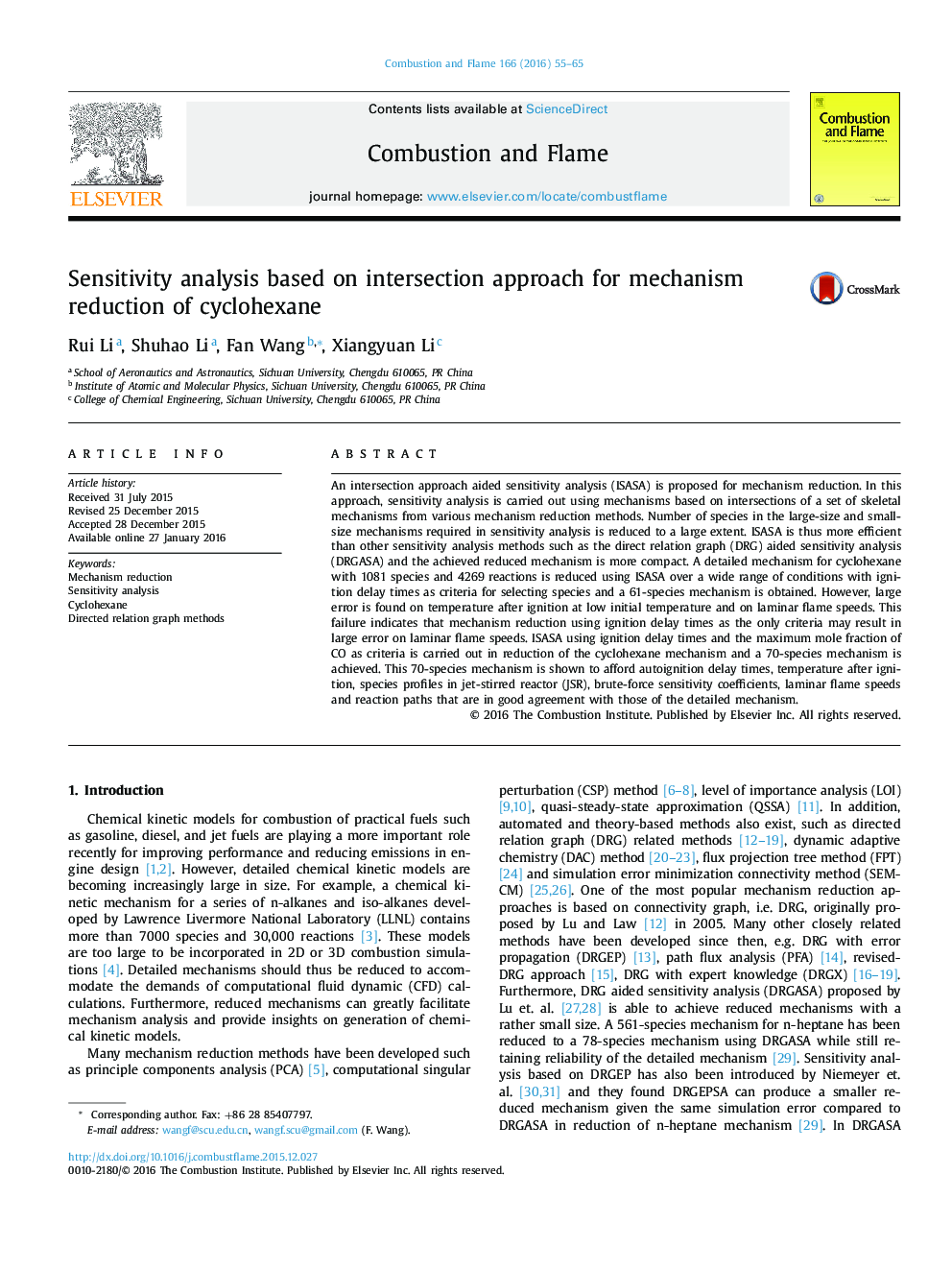| کد مقاله | کد نشریه | سال انتشار | مقاله انگلیسی | نسخه تمام متن |
|---|---|---|---|---|
| 168521 | 457937 | 2016 | 11 صفحه PDF | دانلود رایگان |
An intersection approach aided sensitivity analysis (ISASA) is proposed for mechanism reduction. In this approach, sensitivity analysis is carried out using mechanisms based on intersections of a set of skeletal mechanisms from various mechanism reduction methods. Number of species in the large-size and small-size mechanisms required in sensitivity analysis is reduced to a large extent. ISASA is thus more efficient than other sensitivity analysis methods such as the direct relation graph (DRG) aided sensitivity analysis (DRGASA) and the achieved reduced mechanism is more compact. A detailed mechanism for cyclohexane with 1081 species and 4269 reactions is reduced using ISASA over a wide range of conditions with ignition delay times as criteria for selecting species and a 61-species mechanism is obtained. However, large error is found on temperature after ignition at low initial temperature and on laminar flame speeds. This failure indicates that mechanism reduction using ignition delay times as the only criteria may result in large error on laminar flame speeds. ISASA using ignition delay times and the maximum mole fraction of CO as criteria is carried out in reduction of the cyclohexane mechanism and a 70-species mechanism is achieved. This 70-species mechanism is shown to afford autoignition delay times, temperature after ignition, species profiles in jet-stirred reactor (JSR), brute-force sensitivity coefficients, laminar flame speeds and reaction paths that are in good agreement with those of the detailed mechanism.
Journal: Combustion and Flame - Volume 166, April 2016, Pages 55–65
